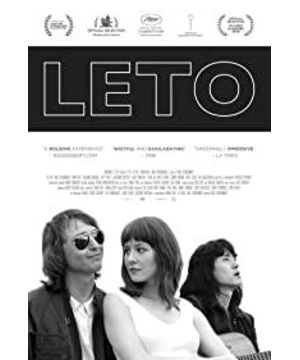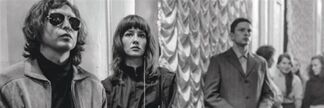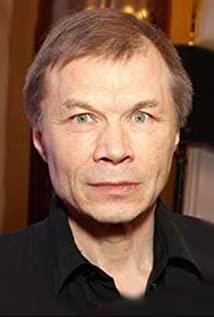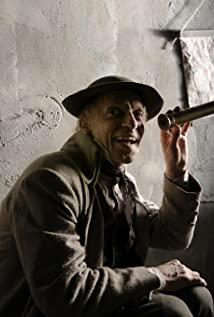This article was first published in [MOVIE Mu Wei] (WeChat public number: movie345)
In the 1970s and 1980s, even in the former Soviet Union, the world's second-largest economy after the United States, active black market transactions and dark storage of Western commodities became the ant colony under the prosperous appearance of this behemoth. Along with the smuggling of Western goods, there is also rock music that is popular in the "capitalist world" in Europe and America.
The young people who grew up in this post-Stalin era, although they are still practicing their uniform dress and personality in a collectivized life, have long been far away from the earth-shaking October Revolution and have never experienced the bloody storm of defending Stalingrad. They face The personal cult of the former leader collapsed, the once sacred truth and historical facts were overthrown, the ears were touched by the bright desires outside the iron curtain, the confused and chaotic young people, secretly reading Solzhenitsyn and Nabokov, secretly Read European and American movies that deviate from socialist realism, and rock music responds to their emptiness and rebellion, enthusiasm and longing unprecedentedly with its radical and avant-garde attitude, and develops rapidly in this land with a spark of fire.
Heavy official repression, mainstream ideological criticism, and strict censorship have also failed to stop this torrent of rock and roll from rushing to the former Soviet Union behind the Iron Curtain. As rock musicians continue to appear and their influence expands, more and more rock clubs are born. The Leningrad Rock Club is one of them. As the largest rock field in the former Soviet Union in the 1980s, those legendary former Soviet rock bands, Aquarium, Kino, Zoopark, Piknik, Alisa, DDT, Televizor, all came out of this rock club.
Serebrennikov's film "Midsummer", which recorded the rock music of the former Soviet Union in the 1980s, opened at the Leningrad Rock Club. At that time, the lead singer of Zoopark-with shoulder-length hair wearing a toad mirror and dressed as a Western hippy Mike’s is on the stage yelling passionately "You are rubbish", but the young people sitting on the stage are still screaming and banners being suppressed by the patrol staff from time to time, and they can only tap on their knees to respond to the rhythm of restless drums.
At a subsequent lakeside gathering, Mike was surrounded by men and women who sang with dancers and his girlfriend Natasha, who also loves rock music. If it were not for language differences, it seemed that they could not be distinguished from the hippies of the "capitalist country". Natasha noticed the Korean youth Victor Choi. Their song "The Lazy Ghost" attracted the attention of everyone and Mike’s support, because this meeting made Mike the future known as the former An early guide to the godfather of Soviet rock and roll.
After experiencing the same pace of European and American rock music in the 1960s, the Soviet youth who copied the era grew up in the 1970s and 1980s to form a national awakening and self-individual development. Rock, which was originally a symbol of freedom and independence, was placed in the former Soviet Union with high political pressure and poor culture. It has the meaning of rebellion and confrontation with the mainstream, thus becoming a pure utopia outside of the impoverished spiritual life. As a result, the criticism, satire, and banter of the lyrics have bypassed the censorship of cultural institutions, and the twists and turns point to disappointing political prospects and increasingly divided social realities. The songs sung by Kino lead singer Victor Choi retain the traditional maxims and metaphors of Russian poetic language on the one hand, and on the other hand change from a passive resistance of escapism to a sharp and direct provocation.
Director Selebrennikov’s music biography did not stay too much at the narrative level, closely following Victor’s growth and fame to launch a god-making movement, nor did he accurately record this history from a deep and grand perspective. In the time dimension of the occurrence, it is more indulging in scenes that are not coherent: busy and crowded backstages of performances, naked bodies at bonfires, chattering alcohol and cannabis parties, and Mike's wallpaper peeling off and dilapidated small apartment complexes.
Therefore, the perspective of the movie lens is more like a peer who participates in it, a bystander wandering between stars and fans , Mike’s girlfriend Natasha, an accompaniment young man wearing David Bowie’s hairstyle, It also guides a series of mysterious men in black who have never happened in the form of MV. In this perspective, the drama, tragedy and heroic aura of the rock epic that has been given too many footnotes by later generations are wiped out one by one. There is no quarrel and disagreement that tears the relationship, and it does not pay too much attention to the rock enlightenment. The great success and influence that came was replaced by cordial rebellion, romantic catharsis, and helpless resistance against official ideology. Similarly, the delicate relationship between Mike, Natasha and Victor seems to be from an old friend who knows everything. The brisk tone tells of their intricate friendship and superficial love. Bypass the heavy moral judgment and the burden of love.
The film gives way to narrative to musicality. This is reflected in the multiple whimsical MVs in the film, which integrate the former Soviet Union’s eclectic tastes of European and American pop music, including Talking Heads’ "Psycho Killer" and Loud Reeds’s "Perfect". Day", Iggy Pop's "The Passenger", the scenes sung by passersby supplemented by early MTV's retro animation graffiti style; more idols mentioned by the protagonists are the thunderous names of the Beatles in the rock hall , Velvet Underground, David Bowie, T-Rex, Blondie, etc.
"Midsummer" is like a letter to the Leningrad underground rock and roll in the 1980s. It records the mixed era of sporadic lights shrouded in large darkness, revealing the gentle compassion of being a contemporaries, and the frenzy and music mixed with music. Fascinated. Compared with the youthful hostility and madness shown in the director Selebrennikov’s last step into the work "The Disciples", the young people in "The Midsummer" are obviously much more optimistic and kind. However, the two films are also both. Paying attention to the spiritual beliefs of Russian youth.
One is the conversion, following and fanaticism towards the Orthodox Church in the post-Iron Curtain era. The other is the confusion of young people in the post-Stalin era who put their spirits on rock music and seek liberation. The same is the anxiety about the fragmentation and collapse of the former beliefs. Thinking and critique of the status quo of the nation.
When the movie was about to end, the scene switched back to the rock club again. Victor, who wore enchanting hair and started to create a new era in his own style, sang "I know my tree and will leave me soon" on the stage. "And the people who were looking at him in the distance were Mike and Natasha. Mike with the toad mirror still made people unable to see whether his emotions had been replaced. At this time, it has only been a few short years since the collapse of the Berlin Wall and the buildings of the former Soviet Union will fall. The iron curtain that divides the world into two poles is being cracked through larger and larger cracks, and the light from it is ignited. More and more free fireworks.
In 1990, Victor Choi, the soul of Kino, died in an accident while driving back to Leningrad.
In 1991, Zoopark's core Mike died at home due to a brain hemorrhage.
In 1991, a large-scale rock music festival considered to have both cultural and political significance-Moscow No Red Square Rock Music Festival kicked off at Tushino Airport.
In 2017, the director Serebrennikov, who has always been arguing with the authorities, was arrested on suspicion of embezzling public funds and is still in prison.
The film stopped on the eve of the end of the Soviet rock era, and came to an abrupt end to Natasha's moved and gratified applause. Let Leningrad Rock Club, let the faith of the youth of an era become a spiritual symbol that will forever persist in that era.
View more about Leto reviews











